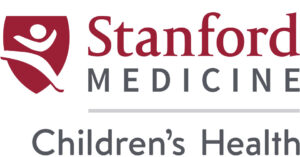A Hidden Health Issue: Bay Area Parents Voice Concern About Kids’ Emotional Well-Being
PALO ALTO – For the second year in a row, Bay Area parents have put their children’s emotional health at the top of their worry list, highlighting a less-recognized yet crucial aspect of children’s well-being.
In a wide-ranging survey commissioned by the Lucile Packard Foundation for Children’s Health, parents across economic, geographic and ethnic lines said that on a day-to-day basis stress, depression, weight and the fallout from family conflict outrank other concerns about their children’s health.
The Bay Area Parent Poll, a telephone survey of nearly 1,800 parents, sheds light on how parents think their kids are faring across a wide spectrum of issues, from asthma and obesity to sleep and the effects of media. And while most parents generally viewed their child’s overall health as excellent, they were less optimistic about emotional health issues. Nearly three out of four parents rated their child’s physical health as excellent, but just over half said the same for emotional health.
“Emotional health is the crux of a child’s well-being, influencing his or her success in school, relationships with family and friends, and ability to make healthful choices about issues like alcohol and drugs use, gang membership and sexual behavior,” said Andy Krackov, senior director of public information for the Lucile Packard Foundation for Children’s Health. “If children are to succeed, we must support their emotional well-being as strongly as their physical health.”
The survey was conducted in July and August 2006, by the Survey and Policy Research Institute at San Jose State University, in English and Spanish, with parents of children under age 18. It covers Alameda, Contra Costa, Marin, San Francisco, San Mateo and Santa Clara counties, and has an overall margin of error of plus or minus 2.3 percent.
Top Concerns: Stress and Depression
While most parents view their children as emotionally healthy, specific responses point up issues that trouble a significant minority of families.
Stress topped parents’ list of concerns for the second year. Two-thirds of parents of teenagers said their child experiences from moderate to high stress levels — caused primarily by schoolwork and pressure to excel in school, but also by divorce and separation issues and family finances.
Depression also ranked high, with about one in four parents of children ages 9-17 very or somewhat concerned that their child is depressed; Bay Area-wide this represents roughly 150,000 children. Yet 75 percent of those parents said their child did not receive counseling or psychotherapy in the past year.
“Parents recognize that their children are struggling with emotional issues, yet few of those children receive help,” Krackov said. “Parental concern for emotional health and other significant findings from the Parent Poll should inform Bay Area discussions about how best to address children’s health and well-being.”
Comparatively small percentages of parents of 9-17-year-olds said they were somewhat or very concerned that their children are smoking cigarettes (5 percent), using alcohol (7 percent), marijuana (5 percent) or other drugs (6 percent) or engaging in sexual activity (8 percent). Even for parents of teenagers, concern about depression and stress was at least double the concern levels regarding substance abuse.
In general, parents reporting lower incomes expressed less positive responses on most measures. For example, while 10 percent of parents with annual household incomes above $100,000 said they were somewhat or very concerned that their child may be depressed, nearly 25 percent of those with incomes below $50,000 said the same.
Parents overwhelmingly said that their children are physically healthy, with nearly 96 percent rating their child’s physical health either good or excellent.
One area of physical health that did raise a flag was weight, with nearly a quarter of Bay Area parents (24 percent) expressing concern, particularly Asian-American parents.
In other findings from the comprehensive survey:
- About 5 percent of parents (representing roughly 75,000 Bay Area children) said their child has a chronic condition that limits his/her typical childhood activities, and these parents reported that the child fared worse across a broad range of measures.
- More than nine out of 10 parents said that their children are somewhat or very safe both in and outside of school.
- More than a quarter of all parents said they do not spend enough time together as a family.
- Four in 10 single mothers in the Bay Area said they do not have adequate income to provide for their child’s basic needs. In the overall sample, 14 percent of Bay Area parents — affecting approximately 195,000 children — said they face difficulties providing for their child’s food, clothing, shelter and other basic needs.
In addition to income, survey results were tabulated by other demographic factors, including county of residence, race/ethnicity, age, gender and marital status. The Parent Poll, along with tabulations for many of these breakdowns and other supporting research and information, can be found at www.kidsdata.org/parentpoll.
The Lucile Packard Foundation for Children’s Health is a public charity devoted exclusively to promoting, protecting and sustaining the health and well-being of children. For more information on the foundation, see www.lpfch.org.

